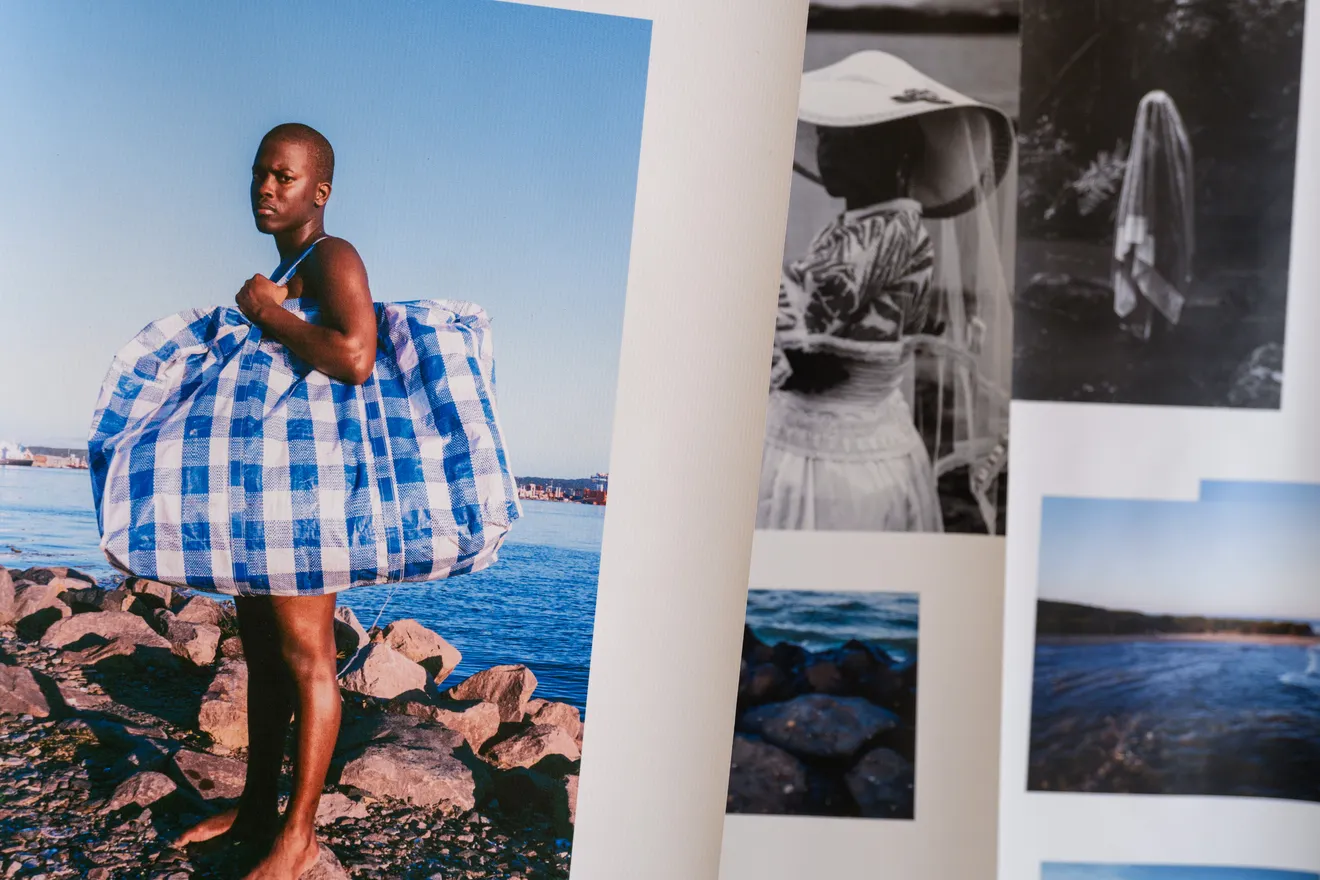
The Contemporary Archive Project (CAP) is an organisation based in Durban, South Africa, working as a collective to safeguard and build an archive of contemporary work made in the KwaZulu-Natal (KZN) province. Through incubation programmes, and creating a network for local image makers, CAP is creating community whilst building an archive of work that tells the stories of people and a place sometimes overlooked.
Creator
Niamh Walsh-Vorster
Location
Durban, South Africa
Date
Nov. 1, 2022

Conceptualised in 2020 during the National South African Lockdown, co-founders, Niamh Walsh-Vorster and Paulo Menezes, initiated CAP as a space for the two Durban photographers initially to get together and create new work.
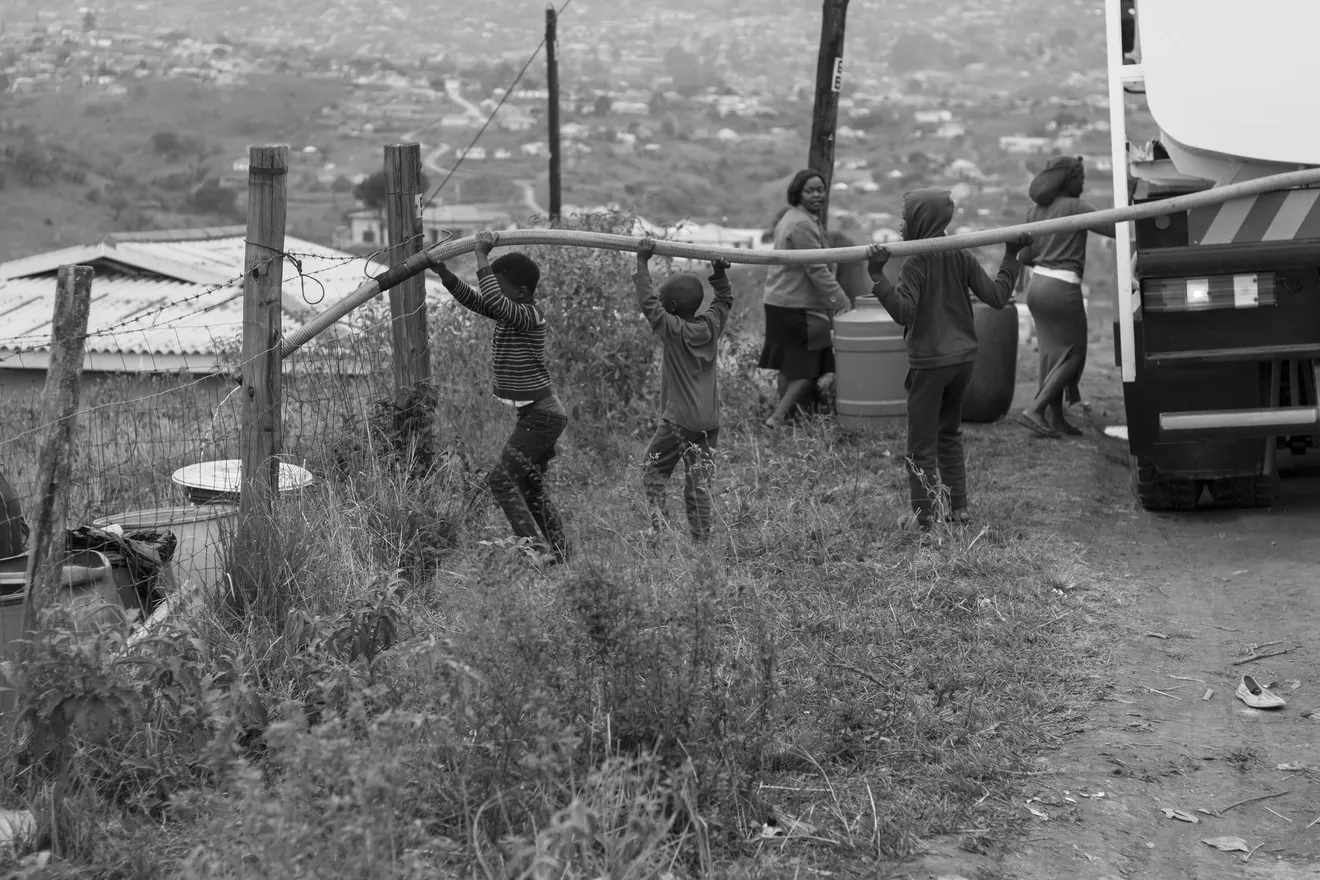
Post photowalk lunch (left to right): Sibusiso Nzimande, Thabiso Ngobeni, Thobani K, Niamh Walsh-Vorster, Paulo Menezes, Menzi Dlamini, Nokulunga Ngubane, Lindokuhle Ndlovu and Manelisi Nene at Little Gujarat Restaurant, Prince Edward St, Durban Central.
Date: 2022
Location: Durban, South Africa, 2022
The CAP
Their background experience with the Durban Centre for Photography (DCP) informed much of the pair's thinking, and the desire to broaden the circle was realised. Their mission to continue the legacy work learnt at the DCP became a core value in CAP’s work, and so the shaping of CAP as a space for critical thinking through incubation and conversations became the organisation's foundation.
In order to build an archive of contemporary photography, CAP trains photographers to develop industry-level practices while archiving, cataloguing and preserving digital photographic files. The organisation also seeks out photography work to safeguard on its platforms. This includes a methodology centred on detailed captions, written narratives and image metadata that are added to each photograph and photo story.
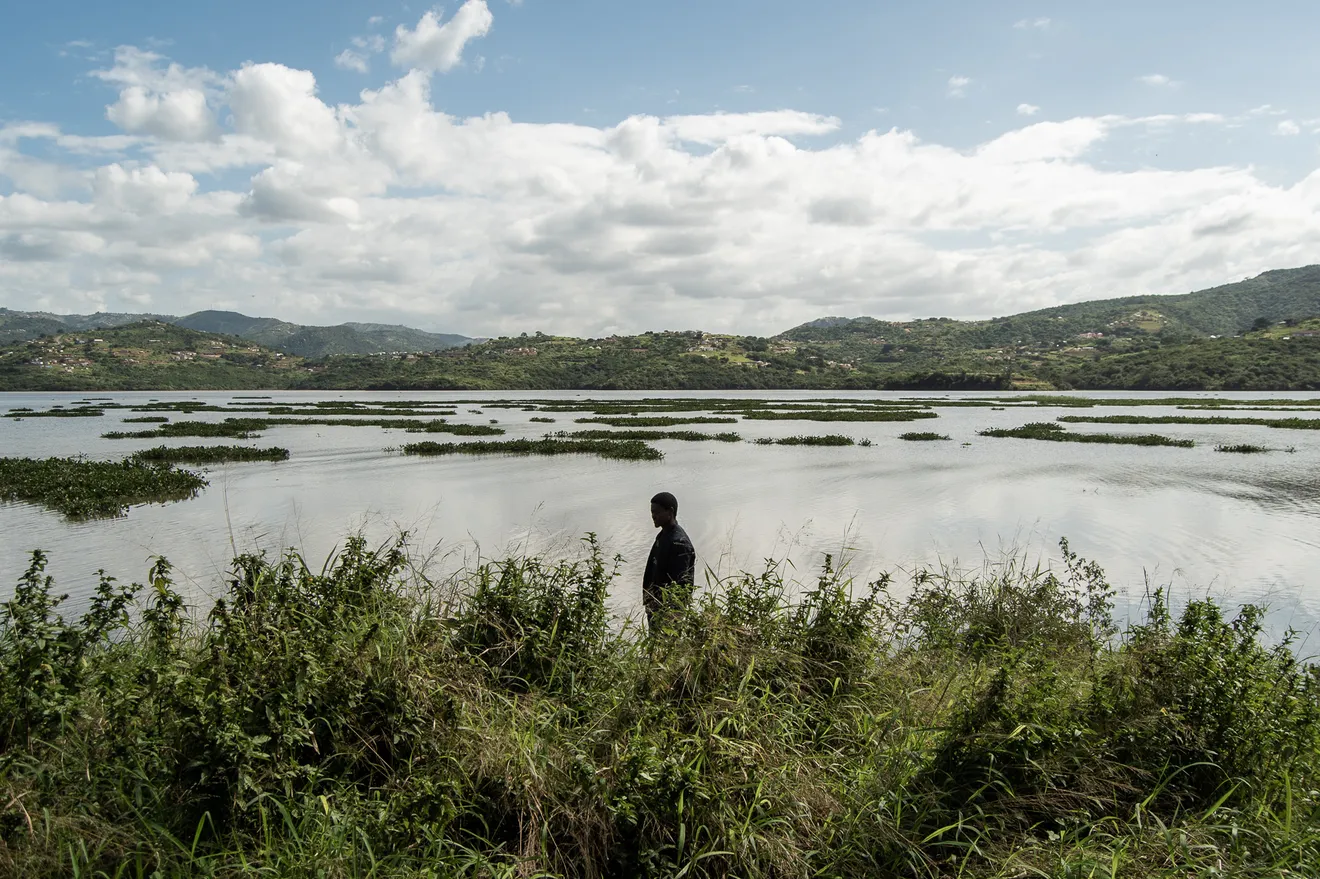
Portrait of photographer Busani Gcabashe at Inanda Dam on a CAP outing.
Date: 2022
Photographer: Niamh Walsh-Vorster
Location: KwaZulu-Natal, South Africa
Make photos, don't take
CAP embraces image-making as a conscientised and ethical practice. This means, documenting with consent, in-depth research and fact-checking, and engaging persons or topics without prejudice.
Contemporary Archive Project is a school of thought that teaches “making” photos instead of “taking” photos*, which is a more ethical, decolonised approach to photography.
These are teachings and methodologies inspired by Durban Centre for Photography, under Peter Mckenzie’s mentorship, and Market Photo Workshop.
Contemporary Archive Project is a school of thought that teaches “making” photos instead of “taking” photos, which is a more ethical, decolonised approach to photography.
Niamh Walsh-Vorster
Writer, independent photographer and creative producer
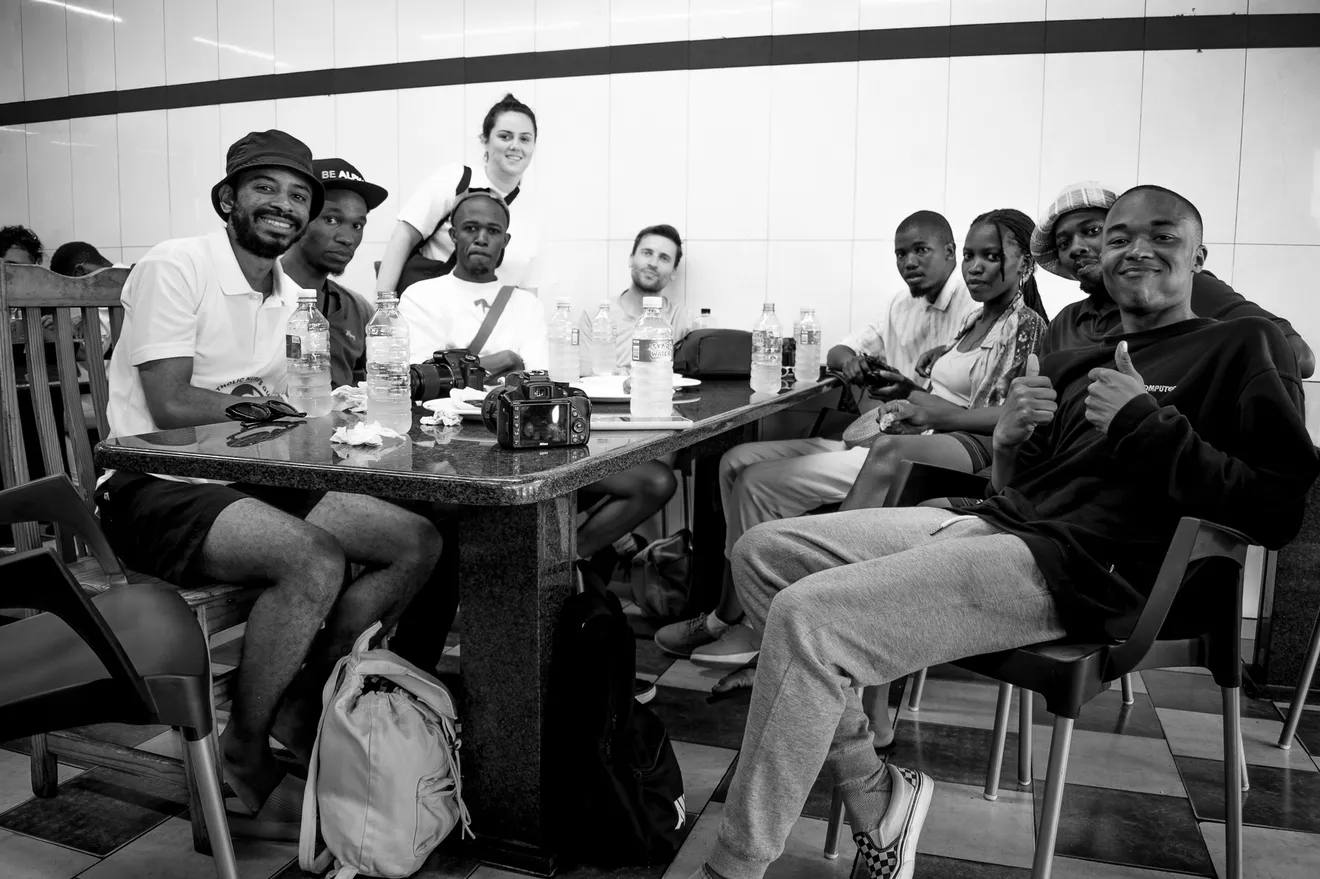
Post photowalk lunch (left to right): Sibusiso Nzimande, Thabiso Ngobeni, Thobani K, Niamh Walsh-Vorster, Paulo Menezes, Menzi Dlamini, Nokulunga Ngubane, Lindokuhle Ndlovu and Manelisi Nene at Little Gujarat Restaurant, Prince Edward St, Durban Central.
Date: 2022
Location: Durban, South Africa, 2022
Creating Community
Today, CAP has grown to a humble collective of community members and peripheral photographer friends, whose contemporary photographic archives of Durban and its surroundings are now part of the online collection that will be curated on CAP’s website, and in future exhibitions and educational showcases.
Photographer’s Thobani K, Lindokuhle Ndlovu, Paulo Menezes, Niamh Walsh-Vorster and Sibusiso Nzimande were part of the first incubator programme conducted by CAP, investigating the theme of water. The final collective body of work used the themes of water as a starting point, which touched on heritage, identity, race and land. Juxtaposed to each other, the photographs of the province offer a glimpse into the multifaceted experience of KwaZulu-Natal, from the inner city, to peri-urban and rural spaces.
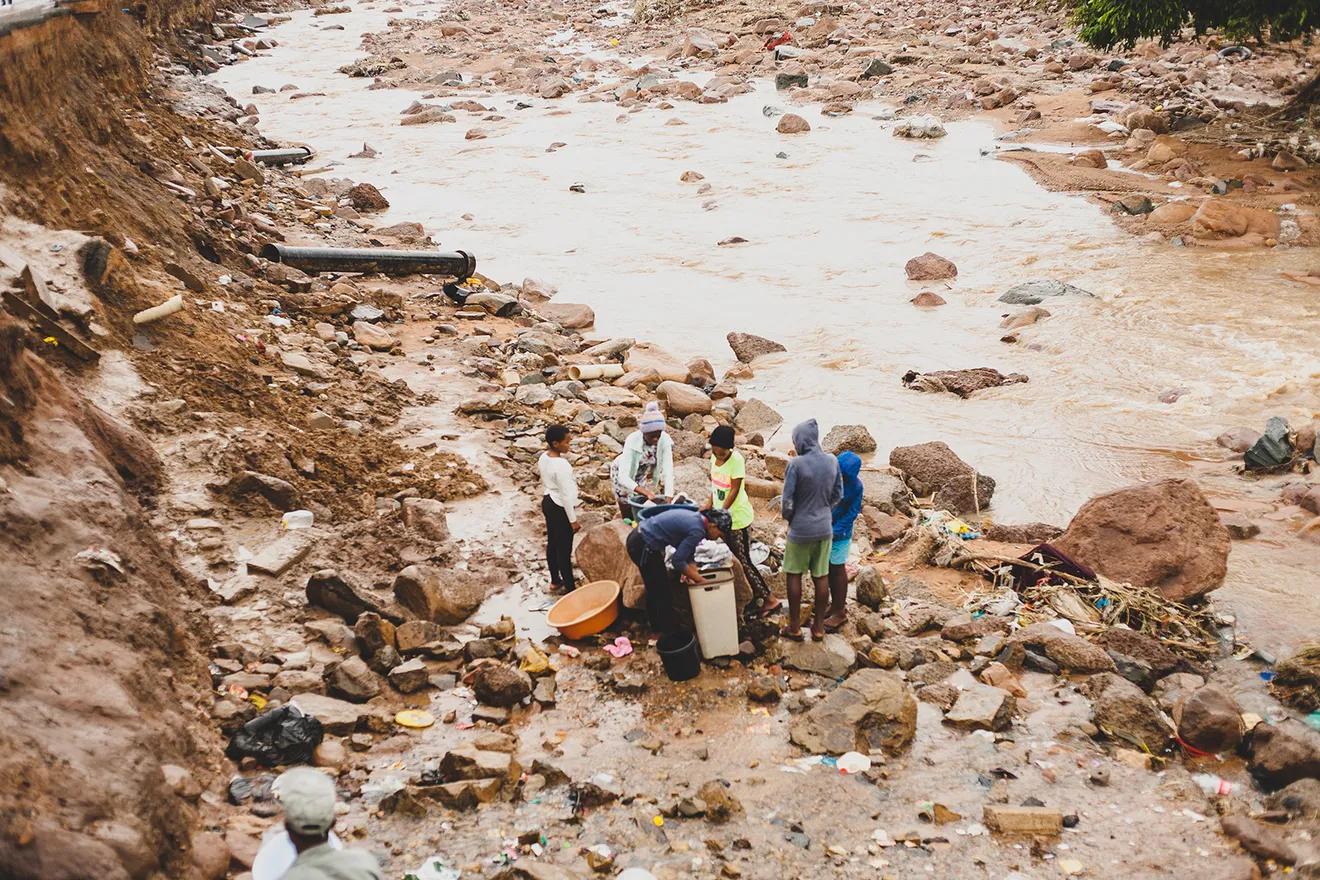
Date: April 2022
Photographer: Lindokuhle Ndlovu
Location: Inanda Amaoti area, South Africa
Building the Archive
The archive that continues to grow includes the work of Mandisa Buthelezi, Wandile Msomi, Themba Mbuyisa, Andre Swart, and Manelisi Nene. The hope is through more incubator programmes, Durban photographers can spend time developing new work that is made consciously and with care.
One body of work to note in particular is Thobani K’s, which investigated the water issues in the area of Eskhebeni, Inanda (where he lives and grew up), as well as connecting his family’s personal history with the space. Much of the organisation's ethos is to promote a photographer's own stories, and dismantle The Outsider gaze, which Thobani’s work epitomises.
www.contemporaryarchiveproject.com
Case studies
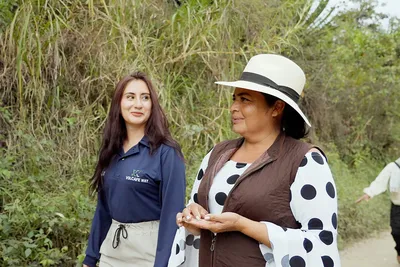
May 2025 - Volcafe Ltd.
Farming as a Business: A Global Story of Coffee and Community
Discover how coffee farmers are building resilient futures. A global story of sustainability, told through local lenses – produced with Fairpicture’s ethical, community-first approach.
Learn more about Farming as a Business: A Global Story of Coffee and Community
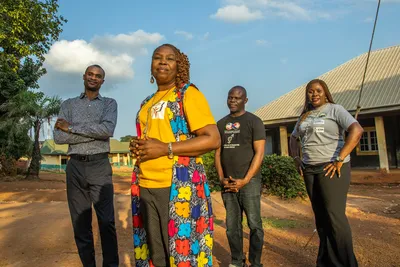
March 2025 - Saferworld | Women for Women International & Women’s International League for Peace and Freedom
Women for Change
Co-creation of a compelling video documentary series about women right’s organizations in Nigeria, South Sudan and Yemen.
Learn more about Women for Change
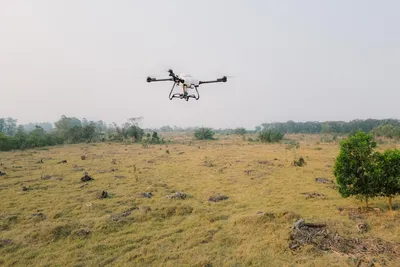
September 2024 - International Trade Centre (ITC)
Reforestation from the sky
Discover how Fairpicture and the International Trade Center spotlighted reforestation efforts in Brazil and emphasizes the fusion of technology and nature to restore degraded land while while promoting green competitiveness.
Learn more about Reforestation from the sky